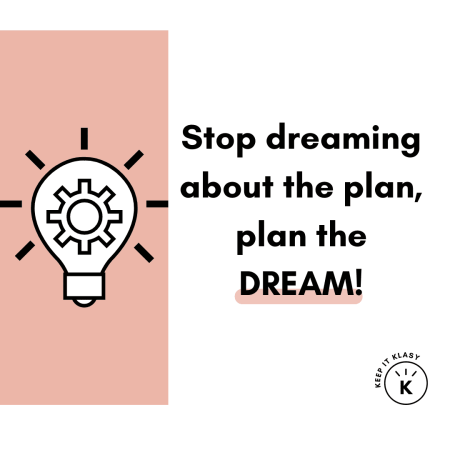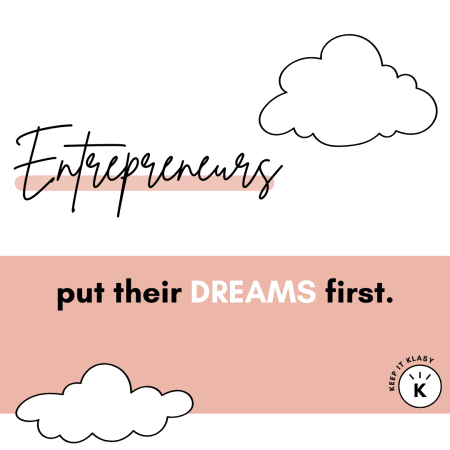
This blog post will point out all the most important distinctions between having a Business mindset vs Employee mindset. I hope this will help you see the benefits of becoming an entrepreneur and see that escaping the rat’s race could change your life and allow you to lead a life you’ve always dreamt of. If you want time, location, and financial freedom without any cap on your earning potential then the entrepreneur/business route is the way to go…So would you be willing to get uncomfortable, try something new and step off the track and do something most people are not willing to try? Would you be willing to set aside quick rewards for long-term gains?
Disclaimer: This site contains affiliate links to products. We may receive a commission for purchases made through these links. Visit my disclaimer page for more information.
What is the difference between having a Business mindset vs Employee mindset?

Business mindset
- Entrepreneurs enjoy freedom.
- Entrepreneurs wake up after a failure.
- Entrepreneurs make the most of current opportunities.
- Entrepreneurs start without thinking.
- Entrepreneurs make rules.
- Entrepreneurs plan their dreams.
- Entrepreneurs create Value for Money
- Entrepreneurs spend money on investments.
- Entrepreneurs are willing to push past uncomfortable.
- Entrepreneurs stay persistent and determined.
- Entrepreneurs improve their skills.
- An entrepreneur sees Security as taking calculated risks.
- Entrepreneurs solve the business problems themselves
- Entrepreneurs build their own dream.
- Entrepreneurs can scale their income with no limits.

Employee mindset
- Employees dream about freedom.
- Employees break down after failure.
- Employees wait for the right time.
- Employees think without starting.
- Employees follow rules.
- Employees dream of their plans.
- Employees trade time for Money.
- Employees spend money on liabilities.
- Employees find comfort in stability.
- Employees give up easily.
- Employees improve their weaknesses.
- Employees see Security is taking no risks.
- Employees expect their boss to fix the problems.
- Employees build someone else’s dream.
- Employees have to climb the ladder.

FREEDOM
Employees dream about freedom. Entrepreneurs enjoy freedom.
As an employee, you have little control over your life and how you live it. It is always 9-5 plus any overtime with maybe 25 days of paid holidays per year. There is no room for freedom as your Boss decides when you work, how you work, how long you work and when you can take your holidays. Your Boss will always put the good of the company above you.
As an entrepreneur, you are in charge of your life, and you can design it in any way you want. You get to make the decisions about how to live your life. You have the freedom to make the choice of which days to work, how long you want to work, you can take as many holidays as you want or need. You can take a break whenever you need. You are free to run things as they suit you.
FAILURE
Employees break down after failure. Entrepreneurs wake up after a failure.
From early on in our lives we are taught that mistakes are bad and reflect badly on us in one way or another. The whole school system and the set up of exams, passing or failing and grades have shaped our mindset that if you make a mistake or fail you are a loser. Employees tend to keep that mindset deep into their working lives and careers and always work toward achieving the next goal or milestone, making sure everything is perfect so that no one will be able to point a finger and catch you out on the fact that even the best sometimes get it wrong. Employees’ only failure is that they do not see the benefit that making mistakes come with.
Entrepreneurs don’t see failure as a setback. Firstly, they fail more often because they are not afraid to take on more challenges and opportunities. Yes, they do not always win but because they try more often, they increase their likelihood of eventually winning. Second of all, they see every failure, setback, or mistake as an opportunity to grow and learn from it. For them, it is a wake-up call to change something and improve.
Entrepreneurs are not paralysed by failure; failure is the drive that keeps them going.
RIGHT TIME
Employees wait for the right time. Entrepreneurs make the most of current opportunities.

How can you know when is the right time? You can’t because there is no way to know what the future will hold and what is waiting for you around the corner.
Employees lose in life because they are often afraid to take the plunge and end up waiting for the right time only to find that the idea of ‘the right time is just an illusion.
Entrepreneurs have a growth mindset that allows them to take the plunge into the unknown because they know that either they will gain something. They will problem-solve anything that goes wrong along the way and that even if all fails they will have learned something valuable for next time.
TAKING ACTION
Employees think without starting. Entrepreneurs start without thinking.
Employees spend a lot of time thinking about ideas, especially as the employment and career bubble bursts and burnout begins to kick in. That’s usually when they start considering if there is another way but rarely do employees take action to make their ideas into a reality. Often it is because, it is too much effort, especially when having to work on those ideas outside of free time. Other times, it is the fear of the unknown that keeps them stuck in the familiar.
Entrepreneurs realize that the biggest risk is being stuck in a job you hate while making someone else’s dreams a reality. Therefore, often they start working on their ideas from the get-go, knowing that initially, it will be a matter of trial and error as they figure everything out. They manage risk and solve problems as they come but they know that the most important thing is to take that first step and turn a plan into action.
RULES
Employees follow rules. Entrepreneurs make rules.
Employees have to follow the rules set out by their boss or company. They rarely have a say or are heard as to how things could be done differently. They are as good as the work they produce and so they will do whatever it takes to not get fired. In doing so they give up all control of how they live their life.
Entrepreneurs consciously know that they do not want to conform to the rules set out by someone else, especially when these rules prevent them from living life in the way they want. Entrepreneurs do not follow rules, they make the rules. Setting up their own businesses or organisations gives them the freedom to do that.
PLANS
Employees dream of their plans. Entrepreneurs plan their dreams.

Employees spend all their free time outside of work dreaming of their plans and what it would mean if these plans manifested into a reality.
Entrepreneurs, know that anything is possible and the only thing it takes is consistent action. Therefore, entrepreneurs rarely sit around daydreaming about what they wish their lives would look like. They want to make the dream a reality so they work backward deciding what it would take to make it a reality. They spend all their free time planning the steps and actions it would take to make their dreams and goals a reality.
MONEY
Employees trade time for Money. Entrepreneurs create Value for Money.
Employees always trade their time for money and often fall into the trap of getting into a well-paying job only to find that it comes at the cost of extra stress, responsibility, and hours of unpaid overtime. There is a cap on how much they can earn because there are only so many hours in a day that it is possible to work. It means that they have little control over their income.
Entrepreneurs do not exchange time for money Instead they set up systems so that they can generate an income if they are or are not present there while providing value. It could be in a form of passive income or through hiring employees that can take on work for them. They also invest their incomes to ensure that in the long-term they will continue generating income passively.
SPENDING
Employees spend money on liabilities. Entrepreneurs spend money on investments.
Employees often fall into society’s biggest trap of having status or appearing to have status. They want to appear like they are rich and successful, so they spend all their money on ‘liabilities’ i.e. the newest most expensive gadgets, bigger houses, fancier interior design, the best car out there, the most expensive holidays…. Although they have more money to spend, they are not necessarily left with more money at the end of the month compared to someone who earns less, because they end up spending much more.
Entrepreneurs, on the other hand, do not let into lifestyle inflation. They do not care if they appear rich to others and therefore, they are not careless with their money. If they earn more money they do not buy more or bigger liabilities. Instead, they spend any money on assets and investments. They understand that if they live frugally for a few years, they can have financial freedom down the line.
COMFORT
Employees find comfort in stability. Entrepreneurs are willing to push past the uncomfortable.
The reason most employees never question their situation or working life even if they are unhappy is that there is comfort and a sense of stability in what is familiar to them. They are scared that if they try to shake things up and take a step outside the pathway that has been defined for them, they will lose or something bad will happen. They stay in that comfort zone but forget that there is nothing comfortable about being someone’s employee. They rely on someone else for their income and forget that they could get fired or lose their job at any moment and replaced and forgotten within a week.
Entrepreneurs, think differently. First, they do not fall into that comfort trap. They know that comfort is where dreams go to die. They are always willing to try the unthinkable and push past the uncomfortable if it means they can gain their time, location, and financial freedom. They are willing to do all this because they see the risk that comes with being an employee and they want to take charge of their income.
PERSISTENCE
Employees give up easily. Entrepreneurs stay persistent and determined.
Employees go for what seems like the easier route of working for someone else. They often give up easily on their dreams because they think that working is easier, less risky, and requires less effort. Being an employee oftentimes means working extra hours to impress your boss, jumping hoops to get a promotion at the expense of your free time.
Entrepreneurs, on the other hand, know that starting a business will require lots of work at the beginning, maybe even more than would be required in a job. But this is only in the initial stages as the business is set up. Eventually, they can enjoy a life of freedom. Few people are willing to give up short-term rewards for long-term rewards and that is why most do not succeed. Real entrepreneurs know that this initial hustle will pay off and therefore they stay persistent and determined to make it work.
SKILLS
Employees improve their weaknesses. Entrepreneurs improve their skills.
Employees often only work hard enough not to get fired and their bosses pay them enough so that they will not quit. This means that employees will only ever work to improve their weaknesses to stay afloat at work.
Entrepreneurs on the other hand continually worked to learn and improve the skills that will be most valuable to them, not just the ones that they need. They go the extra step and continue learning so they are prepared when an opportunity presents itself, even if it is something far down the line.
RISKS
Employees see Security as taking no risks. An entrepreneur sees Security as taking calculated risks.
Employees are often too afraid to take risks and are generally risk aversive. Often it is because so much is at stake and they have little control over their job or salary and therefore would rather stay in the safe lane. Often without realising that sometimes playing it safe, is the riskiest thing to do.
Entrepreneurs are not afraid of risks instead, they take risks and manage the risk. They only take calculated risks which are well thought through and they put systems in place that will minimise the damage if something does not go according to plan. They know that taking on more calculated risks means that they will also succeed more often than if they just stay in the same spot and never take risks at the fear of failure.
PROBLEMS
Employees expect their boss to fix the problems. Entrepreneurs solve the business problems themselves.
Employees completely rely on their boss to fix the problems that arise. It means that employees are more passive in a way and at times may even miss out on an opportunity to learn how to fix it or how to think for themselves. It also means that employees are less likely to have to take accountability for the mistake.
On the other hand, Entrepreneurs, have to solve any problem that arises by themselves without any help from anybody else. They have to take full accountability for their actions and choices and deal with the consequences themselves. This, however, allows them to quickly learn and readjust for next time so they do not face similar problems again.
DREAMS
Employees build someone else’s dream. Entrepreneurs build their own dream.

By working for someone else employees are always making someone else’s dreams come true and usually at the expense of their own dreams.
Entrepreneurs work towards building their own dreams.
INCOME
Employees have to climb the ladder. Entrepreneurs can scale their income with no limits.
Employees always have a limit to how much they can earn depending on the salary ladder for their particular profession. Often time climbing the ladder comes with extra work, more working hours, less free time, and more responsibility and stress.
Entrepreneurs however have no limit on their income. They have the flexibility to scale up their income or look for new opportunities to increase their earnings.
On a Final Note.
So there you have it the 15 differences between having a Business mindset and an Employee mindset and how your life might look differently when you adopt one or the other.
Let me know which one aligns more with you in the comments below.
Natasza
